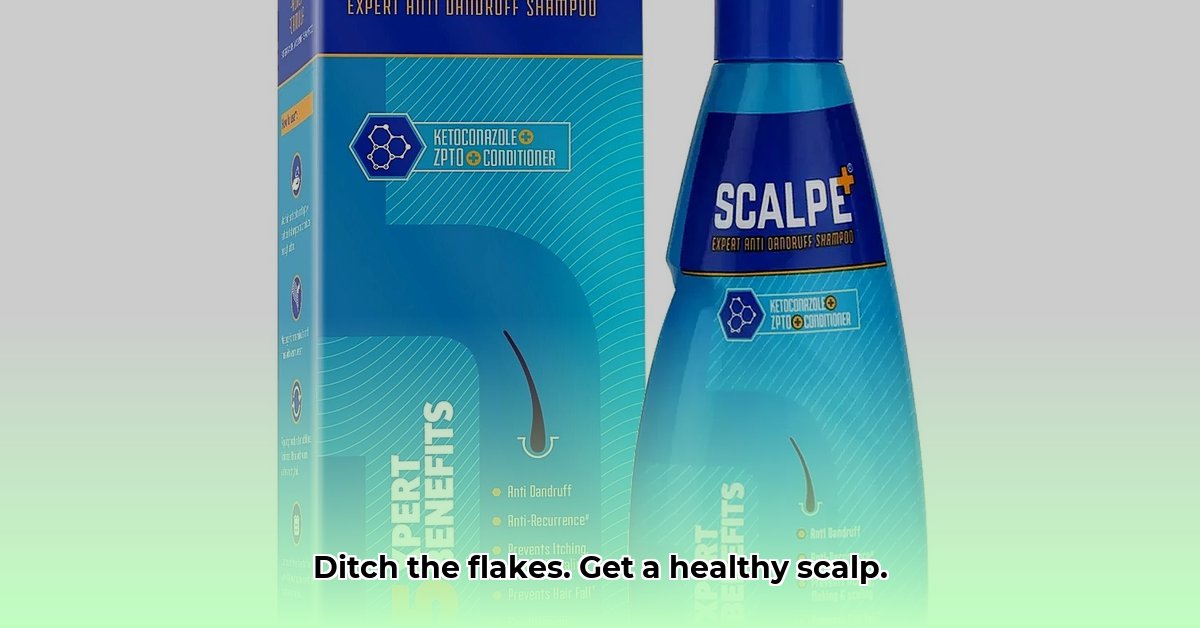Dealing with dandruff can be frustrating, but you’re not alone. This guide provides a comprehensive approach to understanding and managing dandruff, offering expert-recommended shampoos and practical tips for a healthy, flake-free scalp. Ready to say goodbye to those pesky flakes? Let’s get started.
What is Dandruff?
Dandruff, sometimes called scurf, is a common scalp condition characterized by flaking skin and, occasionally, itchiness. It’s not contagious, but it can be embarrassing. Those white flakes on your shoulders are actually dead skin cells shedding at an accelerated rate.
Several factors can contribute to dandruff:
- Dry Scalp: Just like dry skin elsewhere, a dry scalp can flake. This is often worsened by dry climates and harsh hair products.
- Seborrheic Dermatitis: This form of eczema affects oily areas of the body, including the scalp. It causes redness, greasy scales, and stubborn dandruff.
- Malassezia globosa: This yeast-like fungus lives on everyone’s scalp but can sometimes overgrow, irritating the scalp and causing flaking.
- Other Factors: Infrequent shampooing, sensitivity to hair products, stress, and certain dietary factors may also contribute to dandruff.
Choosing the Right Dandruff Shampoo
The key to banishing dandruff lies in choosing the right shampoo. Different active ingredients tackle the problem in different ways. Finding the right one for you might involve some experimentation.
Here’s a breakdown of common anti-dandruff ingredients:
| Active Ingredient | How It Works | Who It Might Benefit | Potential Downsides |
|---|---|---|---|
| Ketoconazole | Powerful antifungal agent; disrupts the fungal cell membrane. | Moderate to severe dandruff, especially if a fungal cause is suspected. | Can be drying to the scalp, so use a conditioner. |
| Zinc Pyrithione | Antifungal and anti-inflammatory. | Mild to moderate dandruff; often suitable for sensitive scalps. | May not be strong enough for severe cases. |
| Selenium Sulfide | Slows skin cell turnover, reducing flaking. Also has antifungal properties. | Mild to moderate dandruff. | Can sometimes discolor light-colored hair (blonde, gray). |
| Salicylic Acid | Exfoliates the scalp, removing flakes and buildup. | Scalp buildup, thicker scales, psoriasis. | Can be drying if overused. |
| Coal Tar | Slows skin cell turnover and reduces inflammation. | Stubborn scaling, psoriasis, seborrheic dermatitis. | Has a strong, medicinal odor that some find unpleasant. |
| Ciclopirox Olamine | Broad-spectrum antifungal. | Various fungal scalp infections. | Can sometimes irritate sensitive scalps; test on a small area first. |
| Tea Tree Oil | Natural antifungal and anti-inflammatory. | Mild dandruff; those seeking a natural remedy; sensitive scalps. | May not be sufficient for severe dandruff. |
Choosing Your Shampoo:
- Dry, itchy scalp with fine flakes? A gentle, moisturizing shampoo might be sufficient.
- Oily scalp with larger, yellowish flakes? An antifungal shampoo (ketoconazole, zinc pyrithione) is likely needed.
- Stubborn flakes that won’t budge? Try selenium sulfide, coal tar, or ciclopirox olamine. Consider consulting a dermatologist.
How to Use Dandruff Shampoo Effectively
Even the best shampoo is ineffective if not used correctly. Here’s a step-by-step guide:
- Prep: Thoroughly wet your hair and scalp with warm (not hot) water.
- Target: Apply the shampoo directly to your scalp, focusing on the affected areas.
- Massage: Gently massage the shampoo into your scalp with your fingertips, avoiding your nails.
- Wait: Let the shampoo sit for the recommended time (usually 5-10 minutes; check the bottle).
- Rinse: Rinse thoroughly until the water runs clear.
- Repeat (If Necessary): For severe dandruff, a second wash might be beneficial, especially initially.
Beyond Shampoo: Holistic Scalp Care
Shampoo is a crucial part of dandruff management, but a holistic approach offers the best long-term results.
- Stress Management: Stress can worsen skin conditions. Consider stress-reducing activities like yoga, meditation, or spending time in nature.
- Diet and Nutrition: A balanced diet supports overall skin health. Some research suggests potential links between nutritional deficiencies and dandruff.
- Gentle Hair Care: Avoid harsh chemicals and excessive heat styling, which can irritate the scalp.
When to See a Dermatologist
If your dandruff persists despite using anti-dandruff shampoos and making lifestyle changes, consult a dermatologist. They can diagnose any underlying conditions and recommend stronger treatments, like prescription-strength shampoos or topical medications.
Frequently Asked Questions (FAQ)
- Is dandruff contagious? No, dandruff is not contagious.
- How often should I use dandruff shampoo? Initially, you may need to use it daily or every other day. Once your dandruff is under control, you can reduce the frequency to once or twice a week. Always follow the product instructions.
- Can dandruff shampoo damage my hair? Some dandruff shampoos, especially those with stronger ingredients, can be drying. Using a good conditioner can help mitigate this.
- Are there natural remedies for dandruff? Some people find relief with natural remedies like apple cider vinegar rinses or tea tree oil, but their effectiveness varies.
Conclusion
Managing dandruff effectively involves choosing the right shampoo, using it correctly, and adopting healthy lifestyle habits. While there’s no one-size-fits-all solution, understanding your scalp’s needs and exploring the available options can empower you to find what works best. Remember, a healthy scalp is achievable, and a dermatologist can provide support if needed. Ongoing research continues to deepen our understanding of dandruff and its causes, leading to improved treatments in the future.
- Divided Food Storage Containers Transform Meal Prep and Portion Control - February 8, 2026
- Divided Food Containers Are Meal Preps Secret Weapon - February 7, 2026
- Food Kits for Adults Offer Fun DIY Cooking Adventures - February 6, 2026










